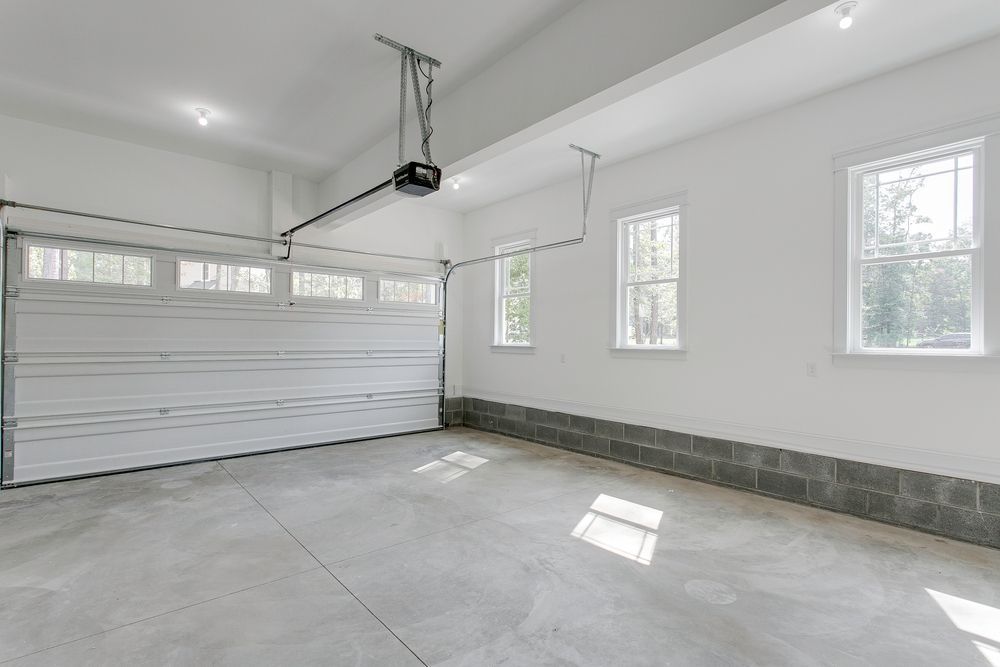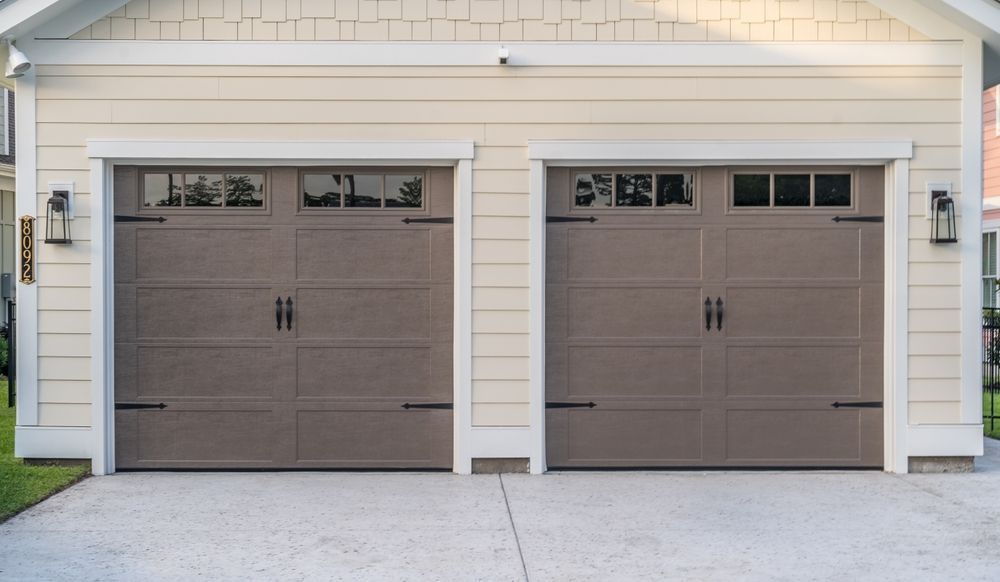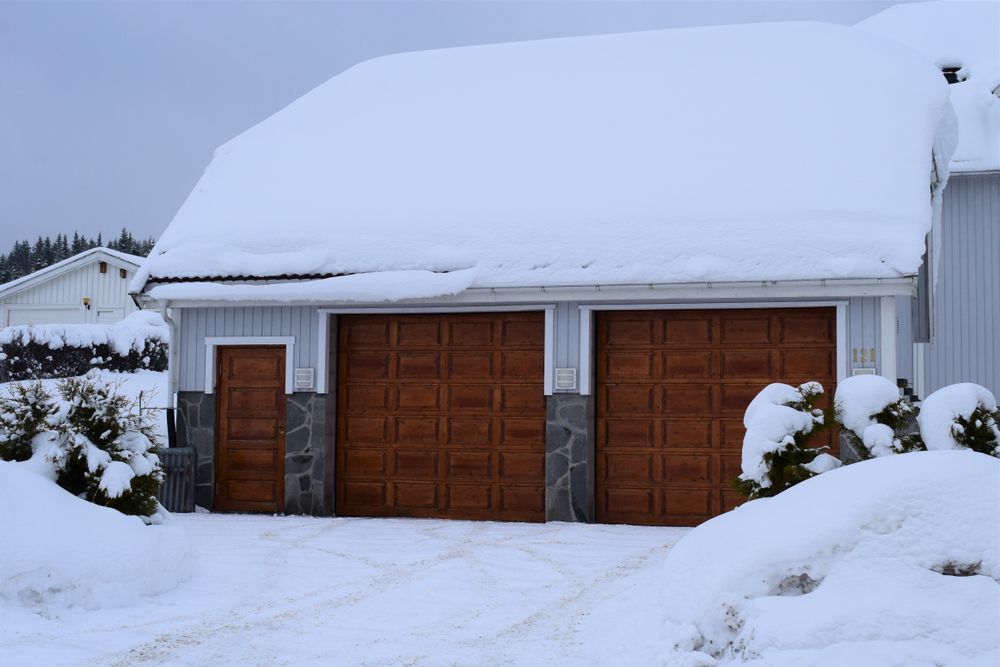Wall Mount vs. Overhead Garage Door Openers
Some garage upgrades are straightforward. Others come down to the finer details of fit, function, and long-term use. When ceilings feel crowded, the opener gets noisy, or you're building from scratch, the choice between a wall mount vs. an overhead garage door opener starts to matter. It depends on how the space is used.
The Two Main Types of Garage Door Openers
Most residential garages use either a traditional overhead opener or a newer wall-mount style. Both lift the door using a motor, but where they’re installed and how they operate can make a big difference depending on your garage layout.
Overhead openers mount to the ceiling and use a rail system with a chain or belt to move the door.
Wall mount openers install beside the garage door and drive the torsion bar directly, keeping the ceiling completely clear
Each has strengths depending on space, access, and how often the door is used.
How Wall Mount and Overhead Openers Work
Overhead garage door openers are mounted to the ceiling and rely on a rail system to pull the door open and closed, usually using a chain or belt drive connected to a motor in the center of the garage. In contrast, wall-mount openers are installed beside the garage door and connect directly to the torsion bar above the door. Instead of pulling the door along a rail, they rotate the bar to lift and lower the door. Both options automate the same task, but the mechanics behind them affect how they interact with your space and ceiling.

Key Differences That Impact Your Garage
Design, sound, and setup all shift depending on the opener you choose. Small changes in layout or function typically have a bigger effect than expected once the unit is in place.
Space and Ceiling Height
Overhead openers need a ceiling-mounted rail and motor, which can limit vertical clearance in garages used for storage or taller vehicles. Wall-mount openers free up the ceiling entirely, offering more headroom and a cleaner look. This is especially useful in lower garages, three-season rooms, or spaces that double as workshops or home gyms. Wall mounts also work well in garages with vaulted or obstructed ceilings where a traditional rail doesn’t fit. If ceiling space or storage is important, the wall mount has a clear advantage. For more basic setups without ceiling limitations, an overhead system still performs well.
Noise and Vibration
Overhead openers move the door using a long rail attached to the ceiling, which typically creates more vibration and sound. This is especially true in older setups or garages that share framing with the house. Chain drives tend to be louder, while belt drives are quieter but still rely on that same ceiling support. Wall mount openers connect directly to the torsion bar and don’t rely on overhead tracks, which reduces vibration and keeps sound levels lower. This makes a noticeable difference in attached garages or homes where the garage is below bedrooms or near living spaces.
Maintenance and Lifespan
Both opener types are reliable, but their design affects how much upkeep they need. Overhead openers have more exposed parts, including rails, chains or belts, brackets, and ceiling mounts. These all require occasional adjustment, lubrication, or tightening. Wall mount openers are more compact and don’t involve overhead hardware, so there’s less wear over time. They also avoid issues like sagging rails or loose ceiling brackets. Overall lifespan depends on build quality and regular care, but for homeowners looking to reduce routine maintenance, a wall-mount opener is often the lower-effort option.
Pros and Cons of Each Type
Overhead Openers
These traditional ceiling-mounted systems are widely available, affordable, and easy to service. Most homes are already set up for ceiling-mounted units, which makes installation straightforward. However, they take up ceiling space and can be louder due to moving parts and vibrations.
Wall Mount Openers
These wall-mounted systems offer a cleaner look and free up ceiling space for storage or added lighting. They tend to run quieter and require less routine maintenance. On the downside, they cost more upfront and require a compatible torsion spring system, which may not be present in every garage without modification.
Cost and Smart Feature Comparison
While both opener types offer modern features, the differences in pricing and tech can influence the final decision.
| Feature | Overhead Opener | Wall Mount Opener |
|---|---|---|
| Initial Cost | Lower | Higher |
| Installation Complexity | Standard setup | May require spring conversion |
| Wi-Fi Compatibility | Available on newer models | Common, often standard |
| Camera Integration | Optional on select units | More frequently included |
| Space Efficiency | Uses ceiling space | Frees up ceiling space |
| Maintenance | More moving parts | Fewer components, less upkeep |
How to Choose the Right Opener for Your Garage Layout
The right opener depends on how your garage is built and how you plan to use it. Ceiling-mounted openers are a solid choice for standard garage layouts with no major space concerns. If your garage has a low or sloped ceiling or you want to add storage, a wall mount creates more flexibility. Noise sensitivity, access to power, and whether you’re replacing or building new also play a role. If the goal is a quieter, cleaner setup and the budget allows, wall mounts often offer more long-term value for modern garages.

Our Recommendation at Uplift Garage
For most standard residential garages in the western suburbs, an overhead opener still gets the job done reliably and at a lower upfront cost. But when space, noise, or layout becomes a concern, we typically recommend wall-mount openers. They offer a quieter experience, a cleaner ceiling, and fewer parts to maintain. Our team installs both styles regularly and can help you decide based on your home’s setup.
Garage door opener replacement is a service we take seriously, and we pair it with quality products and expert support that lasts.
Schedule Your Installation or Consultation Today
A garage opener isn’t something most people think about until it gets loud, sticks halfway, or takes up space needed for something else. It’s easy to assume all openers work the same, but the design you choose shapes how the space feels and functions every day. What fits one home may not suit another. That’s where expert installation makes a difference.
If your garage layout or plans are changing,
Uplift Garage is here to help you find the right fit and get it installed with care. We handle
garage door replacement,
garage door repairs, and everything that goes into a smart, lasting upgrade.
Let’s talk through your options.




